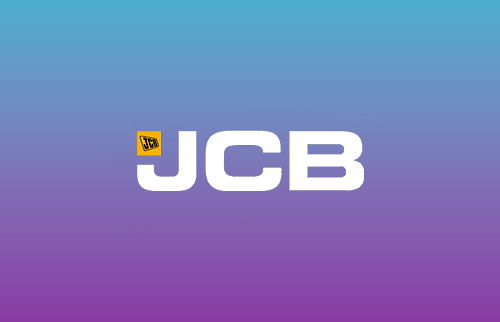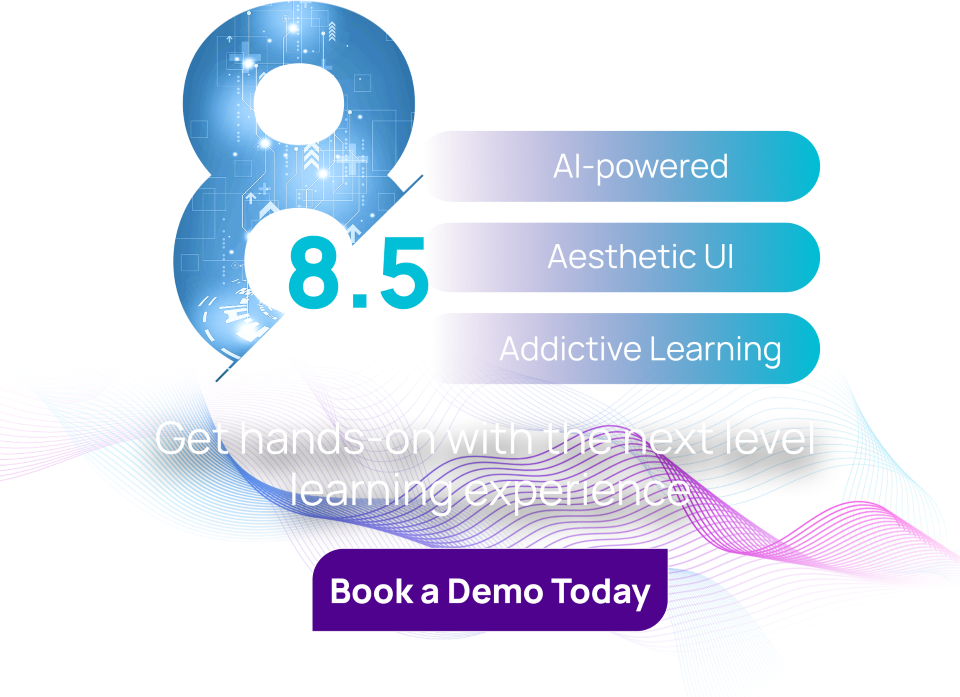
LG Improved Training Adoption by 48% with Tenneo LMS
January 17, 2024
A pioneering microfinance institution transforms learning with Tenneo LMS
April 30, 2024JCB Drives a Remarkable 60% Surge in Course Completion Rates with Tenneo LMS

Client:
JCB India Ltd
Industry:
Manufacturing
In today's competitive landscape, construction and manufacturing organizations are grappling to deliver consistent training while breaking away from conventional training methods. The quest for increased learning adoption and heightened workforce efficiency has become paramount. There is a dire need for organizations to make learning matter for their workforce. They must employ a training platform that efficiently links learning with performance and promises seamless success.
The narrative of JCB India Ltd. presents as a compelling testament to the transformative prowess of Tenneo LMS. This case study highlights how JCB, with Tenneo as its learning partner, redefined learning for its workforce and achieved excellence.
About the Client
JCB India Ltd. is a leading manufacturer of earthmoving and construction equipment in India. The company started as a joint venture in 1979 and is now a fully owned subsidiary of J.C Bamford Excavators, United Kingdom. With five state-of-the-art factories in India, JCB manufactures a wide range of world-class equipment that are sold in the Indian market and exported to over 65 countries. Dealerships and outlets get parts support from four strategically set up warehouses at Pune, Chennai, Faridabad and Kolkata.
Business Requirement
JCB employs over 7200 employees and has a network of 63 dealers. The employees are professionally trained in 650 outlets spread throughout India. These far-reaching outlets provide the vital parts and product support to customers. To enhance the learning experience for the workforce, JCB had specific requirements they wanted in the learning platform.
- Digitalize the Entire Training Process:
The construction and manufacturing industry is constantly evolving with technological advancements. JCB was keen on digitizing the training process to keep pace with industry trends and demands. This would help them ensure that the workforce is adept at current practices and prepared for future demands. - Uniformity in Training Content:
In an industry where precision and standardization are paramount, uniformity in training content is vital. JCB's commitment to delivering quality products and services demands a workforce that is uniformly trained. They wanted to deliver consistent product knowledge and service standards across the organization. - Deliver Structured Learning with Digital Medium Support:
The construction and manufacturing sector's intricate processes require a structured learning approach. By embracing digital learning tools, JCB wanted to empower its employees with a comprehensive understanding of complex workflows. This would lead to heightened operational efficiency, reduced errors, and, consequently, increased growth potential. - Role-Based Training for Dealer Network and Corporate Users:
JCB's dealer network is the backbone of its market outreach. They wanted to tailor training for service roles and ensure that dealers are well-versed with the products and services. This, coupled with role-based corporate training would solidify the workforce expertise within the organization.
Challenges Faced:
To achieve learning efficiency through structured learning programs demanded a robust learning system. JCB faced a few challenges that they wanted to overcome with an AI-powered learning platform like Tenneo LMS.
- Single Repository for Learning Uniformity:
The absence of a centralized learning repository results in a fragmented approach to knowledge dissemination. This made it challenging to deliver industry-specific learning content seamlessly. It was necessary to ensure uniformity in the learning content for the entire dispersed workforce. - Role-Based Training Programs and Accessibility:
The diverse roles within JCB's workforce demand specialized training. It was crucial to deliver learning programs that cater to individual learning goals and preference. The lack of digital familiarity and accessibility to training tools posed a significant hurdle. This was limiting the workforce's ability to contribute optimally to the company's growth trajectory. - Lack of Reporting Engine and Real-time Analytics:
In an industry where dynamic decision-making is important for growth, the absence of real-time analytics was restricting JCB's ability to identify learning needs, performance gaps, and demands quickly. This was necessary for planning and mapping out learning pathways and strategies. - User Information Management and Skill-Based Analysis:
The construction and manufacturing sector's talent pool is diverse, with varying skill sets. Inadequate user information management and a lack of skill-based analysis made it difficult to nurture and optimize workforce learning. There was a need for in-depth skill-gap analysis to understand the exact learning needs of individuals.
Solutions Offered:
Tenneo understood the business requirements and analyzed the challenges that were impacting the learning experience of the JCB workforce. The team realized the need for a robust, centralized learning system that proactively understands the training needs of the workforce and makes learning matter for them.
- Centralized LMS:
A centralized LMS acts as the nucleus for learning uniformity. It becomes the reservoir of industry-specific knowledge, ensuring that every employee has access to standardized information. Tenneo’s centralized LMS helped in bolstering workforce expertise and facilitate a culture of shared knowledge. This propelled the JCB workforce towards innovation and sustained growth. - Advance Modules - eLearning, Assessments, and CLT:
Tailored training through advanced modules helped in delivering role-based learning programs within the JCB workforce. eLearning, assessments, and Classroom Training modules deepen employee understanding and equip them with the skills needed to navigate complex construction and manufacturing processes. This directly contributes to heightened efficiency and growth.
- Real-time Analytics and Dashboards:
With Tenneo LMS’s robust analytics and dashboards feature, JCB had a view on learning progress, needs, and performance of every individual. The data insights also made swift decision-making possible. This also enables JCB leaders and trainers to capitalize on market trends, identify areas for improvement, and make strategic moves that foster sustainable growth. - Smart Notifications:
With Tenneo LMS, employees get smart notifications on their system. Smart notifications act as personalized guides, ensuring that no employee misses critical training. This proactive approach creates a workforce that is not just compliant but continuously learning and growing. - On-Demand Information Access:
Tenneo LMS provides anytime, anywhere access to learning programs. The ability to access information on-demand resonates with the dynamic nature of construction and manufacturing. Employees can quickly access important information and get instant refreshers right before approaching prospects. - Integration with Salesforce and SmartServe:
Integration capabilities offered by Tenneo LMS address the challenge of user information management. By seamlessly connecting with Salesforce and Smart Serve, a database management system, Tenneo ensured effective user information management salwhile delivering personalized learning experiences. - Next Step - Zone and Dealership Wise Skill Graphs:
Tenneo will offer customized skill analysis graphs to enable JCB leaders to have a single view on the current and expected skills of their workforce. By pinpointing specific skills required for different roles and responsibilities, JCB can strategically deploy training resources and enhance workforce growth.
Impact:
Implementing Tenneo LMS enabled JCB to link learning with employee performance and empower its workforce to achieve seamless success. In the process, they achieved significant milestones and results.
- 60% increase in course completion rate
JCB witnessed a significant 60% surge in the course completion rate across all training programs. The structured learning approach, delivered through advanced modules like eLearning, assessments, and Classroom Training, empowered employees to complete courses more efficiently. Real-time analytics and personalized notifications further motivated employees, contributing to a higher completion rate and, consequently, a more proficient workforce. - Average Adoption Rate Elevated to 45%
With the implementation of Tenneo LMS, JCB has successfully elevated its average adoption rate to an impressive 45%. The user-friendly interface, coupled with smart notifications and on-demand access, facilitated a smooth transition to digital learning. This substantial increase in user adoption ensured a more engaged and participative workforce, enhancing overall learning outcomes and organizational agility. - Robust report analytics and dashboards for better informed decision making
The integration of Tenneo LMS's advanced analytics and dashboards feature empowered JCB leaders with real-time data visibility. These reports and dashboards facilitated data-driven decision-making, enabling the identification of learning needs, performance gaps, and areas for improvement promptly. The strategic deployment of these tools contributed to a more informed leadership, fostering a culture of continuous improvement and adaptability. - 1400+ learning programs for 31 different job roles.
JCB successfully implemented over 1400 diverse learning programs catering to 31 different job roles within the organization. Tailoring training through role-based programs addressed the specific needs of individual job roles. This diversity in learning programs ensured that employees across various functions received relevant and specialized training, enhancing their expertise. The correlation between the number of programs and job roles showcased a comprehensive and inclusive approach to workforce development.
Testimonial
"Implementing Tenneo LMS has been a game-changer for JCB India Ltd. The centralized learning system, coupled with dynamic reports and dashboards, has significantly enhanced our decision-making capabilities. Tenneo LMS has truly empowered our workforce, linking learning with performance and paving the way for seamless success. The adaptability of the platform to our unique needs has been commendable. It's not just a learning management system; it's a strategic partner in our pursuit of workforce excellence."
L&D Head,
JCB India Ltd

